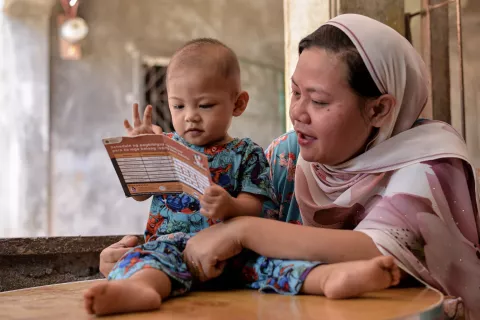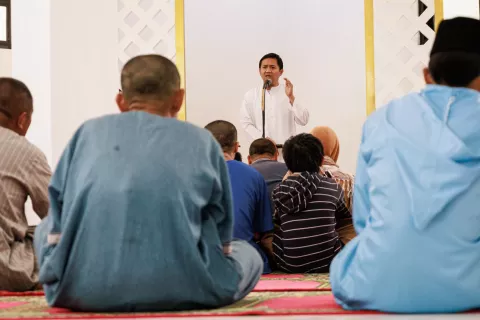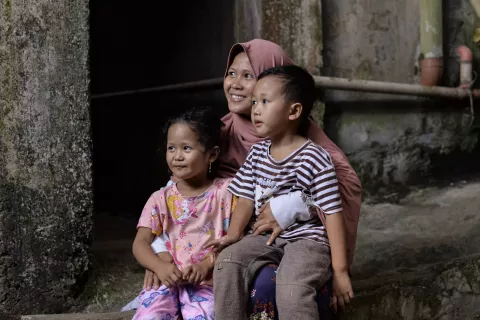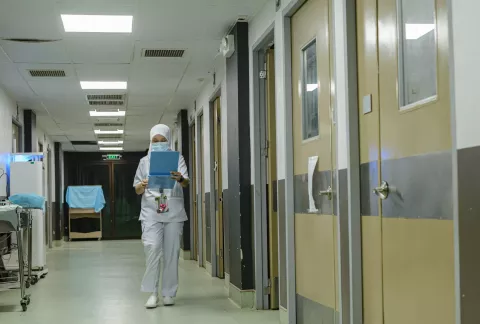UNICEF urges parents to get children immunized; calls for collective actions to fight measles

MANILA, 8 February 2019 – UNICEF is alarmed at the recent reports of various occurrences of measles outbreak across the Philippines. Reported incidences of death and illnesses in children from the vaccine-preventable disease is unacceptable. Recent reports from the DOH and the World Health Organization (WHO) show there are more than 20,000 reported measles cases in the country as of December 2018, a 500 per cent increase compared to last year.
From May 2017 to April 2018 globally, the Philippines ranks among the top 10 countries with the highest incidence of measles, along with Nigeria, Pakistan and the Democratic Republic of Congo. An estimated 2.5 million Filipino children from under five were not vaccinated with the measles vaccine remain at risk of getting the disease.
Measles is a serious and highly contagious disease. Population immunity can be achieved by 95 per cent or higher coverage and outbreaks prevented. Unfortunately, coverage for routine immunizations in the Philippines is only 55 per cent. If not prevented, measles can cause serious complications including infection of the brain, severe diarrhea and dehydration, pneumonia and ear infections and even death. Measles survivors are often left with life-long disabilities, such as blindness, deafness and brain damage.
“Vaccinations to prevent measles is available free of cost in government health centres. The measles vaccine is safe and effective and had been successfully used in the Philippines for more than 40 years now. Measles in children is deadly and can cause long-term complications and disabilities which can seriously impede development and potential in our children,” UNICEF Philippines Deputy Representative Julia Rees says, “I urge parents and communities to take their children to the health center to be immunized.”
The Philippines, as a signatory to the Convention on the Rights of the Child, is mandated to give children the best health care possible, including vaccination against childhood diseases. The Republic Act 10152 or the Mandatory Infants and Children Health Immunization Act states that mandatory basic immunization shall be given for free at any government hospital or health center to infants and children up to five (5) years of age.
Falling short of utmost efforts to urgently increase vaccination coverage and identify populations with unacceptable levels of under, or unimmunized children, we risk losing decades of progress in protecting children and communities against this devastating but entirely preventable disease, according to the World Health Organization.
UNICEF is fully committed in supporting the Philippine government to fight measles by ensuring that vaccines are available. We also provide technical assistance to improve coverage of routine immunization and supplemental immunization activities and improve public awareness on measles vaccination.
We call on parents and caregivers to bring their children to the nearest health center to have their children vaccinated and ensure that they receive at least 2 doses of measles containing vaccine. Children with severe symptoms should see a barangay health worker or midwife as soon as possible, however to prevent spreading the infection at the health facility, children without severe symptoms may be better taken care of at home.
We urge local leaders to intensify immunization activities in their respective localities and areas of jurisdiction and to support mobilization of vaccination teams to reach every child in the fastest way possible.
We encourage health workers both at the public and private health facilities to continue their efforts to ensure that every child in every community is reached with lifesaving vaccines.
We call on all decision makers in government to support the mobilization of health workers, to disseminate the right information and address any fear and mistrust of vaccines.
We all have a shared responsibility to ensure all children are immunized and protected from preventable diseases. We all have a role to play to ensure that families are supported in overcoming barriers, and that children complete their vaccines.
Media contacts
About UNICEF
UNICEF promotes the rights and wellbeing of every child, in everything we do. Together with our partners, we work in 190 countries and territories to translate that commitment into practical action, focusing special effort on reaching the most vulnerable and excluded children, to the benefit of all children, everywhere.
For more information about UNICEF and its work for children in the Philippines, visit www.unicef.ph.
Follow UNICEF Philippines on Facebook, Twitter and Instagram.




